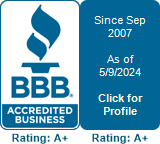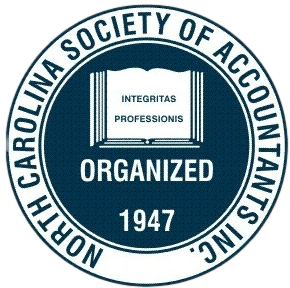Unlock Your Business Potential: The Best Strategies for Cash Flow Management
admin • October 11, 2023
Cash flow forms the heartbeat of any business, small or large. Ensuring a steady and healthy cash flow is not just about survival but also about unlocking your business's immense potential. It's about having the freedom to take calculated risks, make strategic investments, and thrive in a highly competitive marketplace.
This blog post outlines the three best strategies for cash flow management that will set your business on the path of sustainable growth and scalability.
Create a Cash Flow Forecast
Creating a cash flow forecast is pivotal to enhancing cash flow management because it provides a clear vision of your business's financial health. This exercise gives an estimated projection of the cash coming into and going out of your business over a certain period, which helps you to understand your business's liquidity position.
Liquidity refers to a business's ability to meet its short-term financial obligations, such as paying suppliers, employees, and bills. A detailed forecast reveals the peaks and troughs in your cash flow. It can help you anticipate potential cash shortages and take corrective measures before they affect your operations.
In addition, a cash flow forecast promotes proactive financial management. It allows you to anticipate and mitigate risks associated with late payments, unexpected costs, and market downturns.
For instance, if your forecast shows an impending cash shortage, you can reduce overhead costs, expedite invoice payments, or secure short-term financing to bridge the gap.
On the other hand, if you foresee a cash surplus, you can consider making strategic investments to drive business growth. This proactive approach propels your business towards financial stability, even in times of uncertainty.
Manage Your Accounts Receivable and Payable
Accounts receivables are the amounts customers who've purchased your goods or services on credit owe your business. Timely collection of accounts receivable ensures your business has the necessary cash on hand for day-to-day operations and unexpected expenses.
Therefore, if collections are delayed, it can lead to a cash crunch, inhibiting your ability to invest in growth opportunities or even meet basic operating expenses.
To improve your accounts receivable management, consider implementing measures such as offering early payment discounts, sending out timely invoices, and having a clear credit policy. Additionally, regular follow-ups and consistent communication with customers can help expedite collections.
Similarly, effective management of accounts payable—the money you owe suppliers or other short-term creditors—is also vital for cash flow management.
While delaying payments as long as possible may seem beneficial to maintain higher cash reserves, this can lead to strained relationships with suppliers, potential penalties for late payment, and a negative business reputation. This is why negotiating favorable payment terms and setting up a transparent system for tracking payments can help maintain cash flow stability.
Optimize Your Inventory Management
Holding too much inventory ties up cash that could be used elsewhere in your business, while keeping too little can lead to missed sales and disappointed customers. Both scenarios can harm your cash flow by depleting your available resources or limiting incoming cash due to lost sales.
Therefore, striking a balance is essential. Efficient inventory management ensures you have the right amount of stock at the right time. It eliminates the risk of overspending on surplus stock and the need for storage space, reducing overhead costs and freeing up cash for other business operations.
Moreover, efficient inventory management goes beyond just maintaining the right inventory level. It also involves tracking your inventory's turnover rate, the number of times a product is sold and replaced over a certain period.
A high turnover rate indicates strong sales and a healthy cash inflow. On the other hand, a low turnover might suggest overstocking or difficulties in selling a product, which could tie up your cash and result in stock obsolescence, leading to further financial losses.
If you're struggling with cash flow management, consider working with one of our qualified professionals at Quality Bookkeeping Services Inc. We can help you develop a customized cash flow management strategy that won't just address your immediate concerns but also set your business on a path of long-term financial stability.
DIY bookkeeping might sound good but could cost you money, time and lead to errors. Read this blog to learn the benefits of professional bookkeeping now!
Ensuring a steady cash flow is not just about survival but also about unlocking your business's immense potential. Read about our strategies for management.
Has your business gone through a big change recently? Learn about three situations that may require you to redefine your business tax commitments.
While petty cash may be a minor part of your operation, it's an important tool to have around. Read this blog to learn how to manage it effectively.
As a small-business owner, you know that every penny counts. Read this blog to learn how you can maximize your small company’s tax deductions.
Do you spend a lot on accounting? If your annual accounting spending is higher than the average, discover the following accounting mistakes to avoid.
Forensic accounting deals with the identification, analysis, and presentation of financial evidence. Read this blog to learn what kinds of cases they serve.













